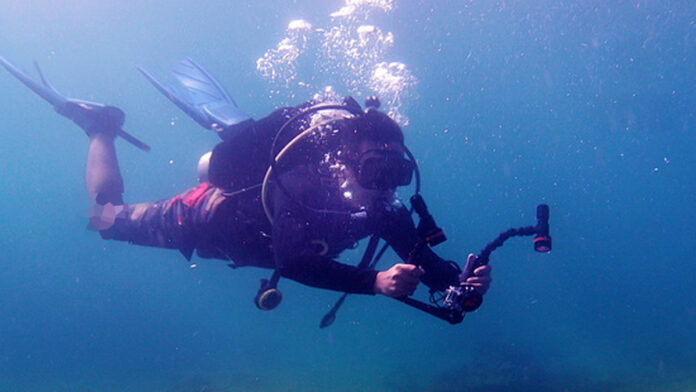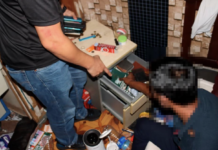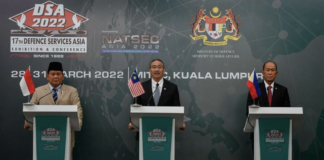KUALA LUMPUR – Just as diving operators were receiving bookings and gearing up to welcome locals and foreigners to Malaysia’s world-famous dive sites, a tragic incident has cast a pall over the sector.
On April 9, four foreign divers went missing while diving in the waters of Pulau Tokong Sanggol, near Mersing in Johor. Three of them were eventually found and rescued but the fourth diver is believed to have died.
The incident received widespread coverage both in and out of Malaysia. It even compelled the Sultan of Johor, Sultan Ibrahim Almarhum Sultan Iskandar, to order all diving activities in Mersing to be temporarily suspended pending a review of safety measures and diving rules and regulations.
Professional scuba diving instructors contacted by Bernama viewed the incident with deep concern, saying that although it is not typical, the situation requires the serious attention of the authorities as it was not the first time divers had gone missing or died whilst diving in Malaysia.
One of them Dr Samir Muhazzab Amin, who is a Professional Association of Diving Instructors (PADI)-certified instructor, proposed that a specific agency or body be established under the relevant ministry to regulate scuba diving activities as well as monitor the registration of diving centres and instructors.
NO SPECIFIC REGULATIONS, REGULATING BODY
He said although not many cases of divers going missing and dying have occurred at Malaysian dive locations, such incidents, nevertheless, can have an impact on operators of diving centres as the public would perceive diving as a risky sport.
“In fact, this tragedy may have tarnished our country’s image as a diving paradise, and it occurred at a bad time for our tourism industry, which is still struggling to recover from the effects of the COVID-19 pandemic,” said Samir Muhazzab, who is also Deputy Director of Consulting, Community Networking and Development at Universiti Putra Malaysia’s Sports Academy.
He also described the Johor ruler’s order to review diving rules and regulations as timely, recognising that while Malaysia is renowned for its dive sites and earned some RM1.5 billion from the industry up to April 2017, the truth is that diving activities in this country “are not well regulated and managed while diving equipment and boats are not properly maintained ”.
Samir Muhazzab, who has been a diving instructor for 10 years, said the situation was worrying due to the absence of clear regulations to regulate scuba diving activities in Malaysia. The industry, he stressed, needs to be regulated to ensure the safety of divers and prevent any future catastrophe.
“The reason why I’m saying it is not well managed is that to date, Malaysia has yet to have an agency or special body that has clear regulations to oversee scuba diving activities. As a consequence, when any unpleasant or unfortunate situation occurs, all agencies will point the finger at each other,” he said.
He said the absence of a dedicated agency to regulate scuba diving activities will also make it easier for people to open diving centres without possessing the necessary accreditation and licences.
“We are worried tourists may use the services of these unaccredited diving operators. This is why it is necessary to have a proper agency (to oversee diving operations) that can act as a referral platform to those who wish to get advice on diving, identify registered diving centres and use the services of certified diving instructors,” he said, adding that the absence of a regulating body allows problematic instructors to remain in the industry even after they have been terminated for misconduct because there are currently no rules in place to prevent them from being re-certified as instructors by the other scuba diving associations.
FOREIGN INSTRUCTORS
Samir Muhazzab also said that the absence of a regulating agency has led to foreign diving instructors offering their services in this country.
“Take me, for example… I’m a scuba diving instructor but I can’t teach (diving) in Australia because it has specific regulations to govern the industry locally, but a trained scuba diving instructor from Australia is able to come to Malaysia and work here because they are not required to fulfil any local requirement in order to become a scuba diving instructor in Malaysia,” he said.
He claimed that many foreign instructors use the social visit pass to enter Malaysia and work as diving instructors.
Samir Muhazzab also said that currently, scuba divers are not required to report the dive location they wish to explore, which, he added, may expose them to danger.
He said it is crucial to report the dive site to ensure that the area they wish to explore is safe. It will also facilitate rescue operations in the event of an emergency.
Muhammad Fajrul Omar Muhamad Ridzuan, who is also a PADI-certified instructor, stressed the importance of using the services of certified instructors and boatmen so that they can assist the scuba divers should they encounter a problem.
He said the instructors and boat operators must be licensed to carry out scuba diving activities because the risks faced by scuba divers are not the same as those faced by snorkellers.
“The government can, perhaps, set standard operating procedures (SOPs) which boatmen must comply with in assisting divers facing danger,” he said, adding that diving is safer than other extreme sports activities and rarely results in death or serious injury.
His views were shared by Mohd Dalila Mansor, a Rebreather Association of International Divers (RAID) instructor examiner with over 25 years of experience in the field.
Mohd Dalila said diving is not only safe but a fun-filled activity provided that divers are disciplined and adhere to the necessary SOPs, the most important one being the pre-dive preparations, which include inspecting their equipment to ensure they are functioning well and attending a briefing on the conditions of the dive site.
DIVING SAFELY
“During the briefing, the divers will be reminded of the safety risks and how to navigate across the (water) current, as well as what step to take in case they run out of air. They are also briefed on the types of fish considered as dangerous and safety measures to take if they are separated from their ‘buddy’,” he said.
Mohd Dalila said in diving, there is an emphasis on the buddy system as it allows a diver to stay close to another diver during a diving expedition. The diver and his or her buddy can continuously monitor each other and render immediate assistance if required.
He said if a diver loses sight of his buddy, the first thing he should do is observe his surroundings for one or two minutes. If his buddy is still not visible, then he should rise to the water surface and inflate his buoyancy control device, which can help him to stay afloat for up to 12 hours.
“While floating on the surface, the diver must blow his whistle which can be heard as far as 200 metres away to attract the attention of the boatman.
“This is why it is crucial and a must for the boatman to remain at the location where he drops off the divers. The boatman should not wander off elsewhere and should observe the conditions at the dive site including the weather and strong currents,” he explained.
He stressed that in diving, it is absolutely crucial for the diving centre, boatman, instructor and divers to communicate with each other.
He also advised those who want to go scuba diving to seek the services of accredited professionals who have extensive knowledge of the dive site they wish to go to.
















